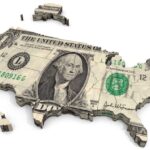UPDATE 9.20.23: Miami-Dade County has burnished its reputation as the least woke big city in America after the school board rejected a resolution to recognize October as LGBTQ History Month at the schools. Joe Jacquez reports in The Hill:
For the second time, the Miami-Dade County School Board rejected a proposal that would’ve made October “LGBTQ history month,” according to multiple reports.
The 5-3 decision came around 1 a.m. Thursday morning, after dozens of public speakers representing both sides of the issue made their respective cases. A similar item was proposed last year before also being denied.
Since 2021, the last time the Miami-Dade school board members recognized “LGBTQ history month,” school boards in numerous Florida counties have been reshaped by members who align with a view that some conservatives and Florida Gov. Ron DeSantis (R) hold — that parents have a right to influence local curricula and other aspects of their child’s education.
You know Americans have been frantically fleeing America’s big blue blob cities for two years now, after Progressives unleashed violence on residents during the riots and looting of Summer 2020, and followed it up with two years of brutal, bankrupting COVID-19 restrictions that made it impossible for America’s small business owners to do business. But there is one big city that became a landing ground for these blue state refugees, Miami. Rather than becoming more Democratic like many of America’s big cities, Miami is becoming a conservative Mecca on Florida’s coast. Oliver Wiseman calls Miami, “The Least Woke City in America” in City Journal, writing:
They’re still talking about the caravans: the miles-long lines of cars, their passengers waving American flags, Cuban flags, and Donald Trump banners, that painted streaks of red, white, and blue down Calle Ocho and around Little Havana, bringing much of Miami to a halt for hours at a time ahead of the 2020 election. On a recent trip to the city, those I spoke with—Republican operatives and supporters, as well as more impartial observers of Miami’s political scene—described these demonstrations vividly. The multinational, multilingual expressions of support for a Republican presidential candidate were unmistakably Miami. They displayed a flavor of GOP enthusiasm that couldn’t happen anywhere else, at least not on this scale. The demonstrators took cues from the city’s proud anti-Communist past. Some of the organizers of the events—officially known as the “Anti- Communist and Anti-Socialist Caravans for Freedom and Democracy”—included groups established to fight the Cuban dictatorship. The parades were a rejoinder to pollsters who warned not to read too much into enthusiastic displays of support for a given candidate. Miami was the site of major political change in 2020, and if you watched the car parades, you saw the indicators earlier than most.
Miami-Dade, Florida’s largest county, is two-thirds Hispanic and shifted dramatically toward the Republicans in the last election. In 2016, Hillary Clinton won by 64 percent to Trump’s 35 percent in the county. Four years later, Joe Biden triumphed, but in a much closer contest: 53 percent to 46 percent. That huge swing in such a big county was key to Trump’s relatively straightforward Florida win. In raw numbers, Trump nearly doubled his vote count in Miami-Dade, from 333,000 in 2016 to 617,000 in 2020. His statewide margin of victory, under 120,000 in 2016, more than tripled, to 372,000 in 2020.
The changing habits of voters in Miami are perhaps the most important part of the story of why what was once the most coveted swing state in the Electoral College has taken on a reddish hue. What’s true on a presidential level is true on a gubernatorial level. Ron DeSantis sneaked into office by just 30,000 votes in 2018. Since then, his stock has soared; his 2022 reelection seems likely. The swing in 2020 was also enough to flip two South Florida House seats from blue to red.
It soon became clear that the Miami results were indicative of a national story of Hispanic voters shifting rightward in 2020. Latino-heavy precincts everywhere from the Rio Grande Valley, Texas, and Clark County, Nevada, to Paterson, New Jersey, and Milwaukee saw a marked move to the right. According to a Pew survey of validated election voters, the nationwide Democratic margin of victory among Hispanic voters dropped from 38 points to 21 points from 2016 to 2020, with 38 percent of Hispanics voting for a second Trump term.
Florida’s growing less white and more conservative offers Republicans nationwide a feel-good story. Florida senator Marco Rubio, himself a Cuban-American from Miami, has argued that the lesson from 2020 is that his party must be built on a “multi-ethnic, multi-racial, working-class coalition.” It’s not hard to see the appeal of this vision, undercutting, as it would, Democratic assumptions about the party’s rainbow coalition.
Adding to this demographic and electoral shift are the results that Republicans in power have delivered in recent years. DeSantis has overseen a practical approach to the pandemic that—at least according to the revealed preferences of exiles from Democratic states—is what many Americans wanted. According to the state’s Office of Economic and Demographic Research, Florida grew by an estimated 329,717 new residents in the 12 months to April 2021. Meantime, Miami’s Republican mayor, Francis Suarez, has hustled his city onto the tech hub map, doing all he can to lure talent and capital from Silicon Valley and New York. (See “America’s Tomorrow City.”) Thanks to policymaking at a city and state level, Miami has become perhaps the most prominent counterexample to instances of Democratic dysfunction.
The Miami lesson is also about how much Republicans stand to gain if they don’t neglect cities. The urban Republican has become something of an endangered species lately; at times, it can feel like the GOP has given up on serious attempts to win votes in the country’s major cities. But Miami underscores the prominent role that cities can play in Republican victories. The party doesn’t need to win majorities in densely populated areas for an improved urban performance to count: it just needs to pick some low-hanging electoral fruit, make inroads into large Democratic margins in metropolises, and then the path to statewide victory for Senate, gubernatorial, and presidential candidates suddenly looks clearer.
Action Line: Your Survival Guy calls the states looking at their residents like valued customers, like Florida, Super States. Those looking at their residents like a piggy bank from which to withdraw money, like California, are the Escape States. If you are serious about making the move from an Escape State to a Super State, but can’t get going on your goal, I can help. Click here to subscribe to my free monthly Survive & Thrive letter, and I’ll help you break inertia and achieve your goal of freedom. But only if you’re serious.
P.S. After Miami was dubbed America’s “Least Woke City” in March of 2022, it reinforced that moniker by swinging to support America’s fiercest foe of “Wokism,” Governor Ron DeSantis. DeSantis was the first GOP gubernatorial candidate to win in Miami-Dade County since Jeb Bush in 2002. Joshua Chaffin reported in January of 2023 on the resurgence of Republicans in Miami for the Financial Times, writing:
In one of the more surprising results of November’s midterm elections, Florida Governor Ron DeSantis became the first Republican candidate for statewide office in 20 years to conquer Miami-Dade, the state’s most populous county and a Democratic bastion dominated by black and Hispanic voters.
DeSantis’s 11-point victory in Miami-Dade represented a whiplash-inducing 40-point swing from Hillary Clinton’s 2016 triumph there over Donald Trump, intensifying speculation the governor will mount a White House campaign.
It also confirmed what many on the ground already knew: Republicans now dominate what was, until recently, a vital swing state that has shifted to the right even as conservatives’ grip appears to be loosening on other traditional havens, such as neighbouring Georgia.
It had become conventional wisdom among pundits that the growing numbers of Latino voters in states such as Florida would fill the Democrats’ ranks. Instead, Miami-Dade’s turn could be a sign that Republicans have honed their appeal to more culturally conservative Latino voters, something that could pay dividends far beyond south Florida.
Originally posted March 14, 2022.
E.J. Smith - Your Survival Guy
Latest posts by E.J. Smith - Your Survival Guy (see all)
- “Happy I Found Richard C. Young’s Intelligence Report” - April 16, 2024
- Residents Lose Faith in Blue Cities - April 16, 2024
- Want to Make and Keep Generational Wealth? - April 16, 2024
- Your Retirement Life: Watching The Masters and More - April 15, 2024
- Fight Food Inflation with Gold - April 15, 2024















